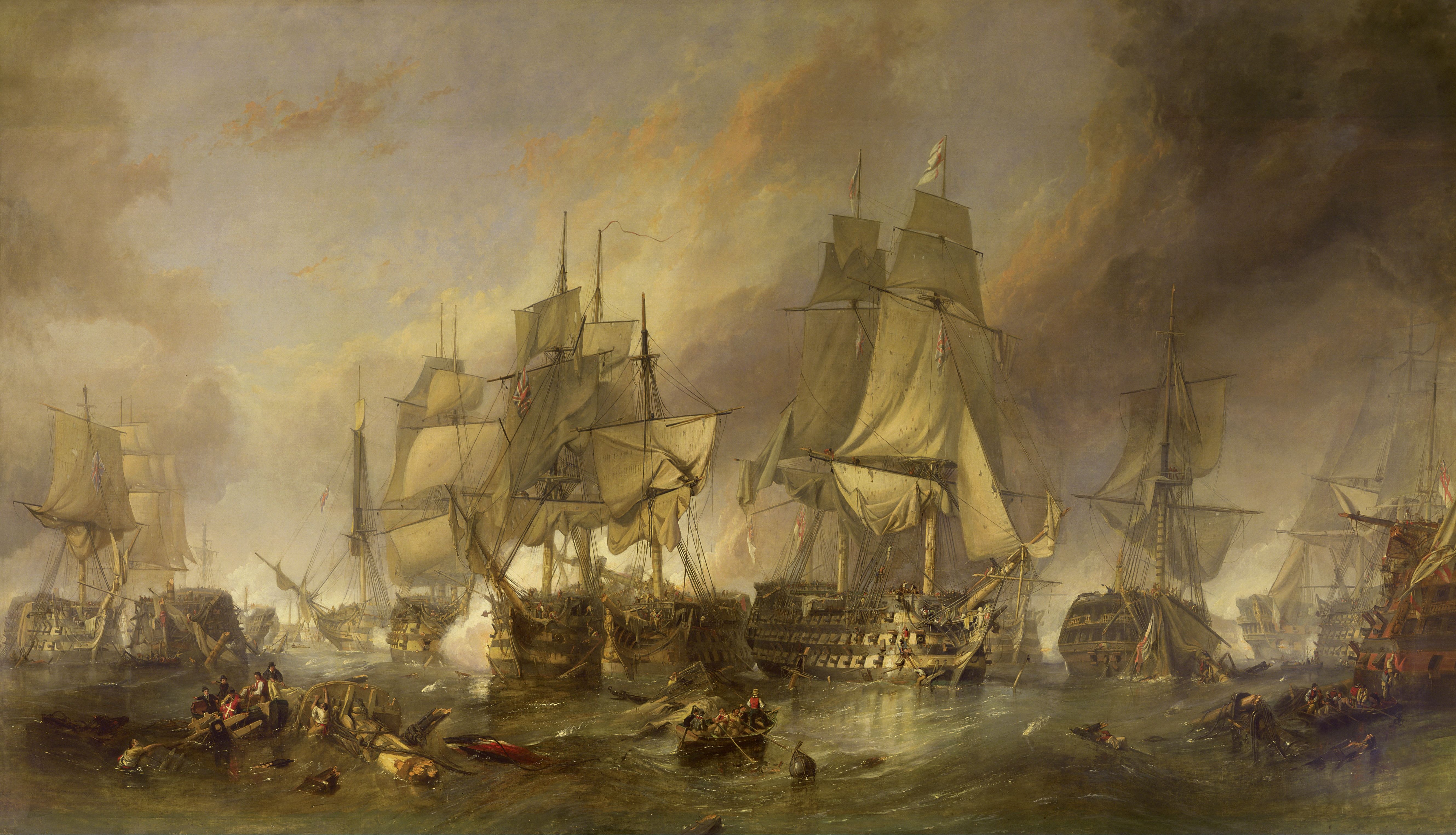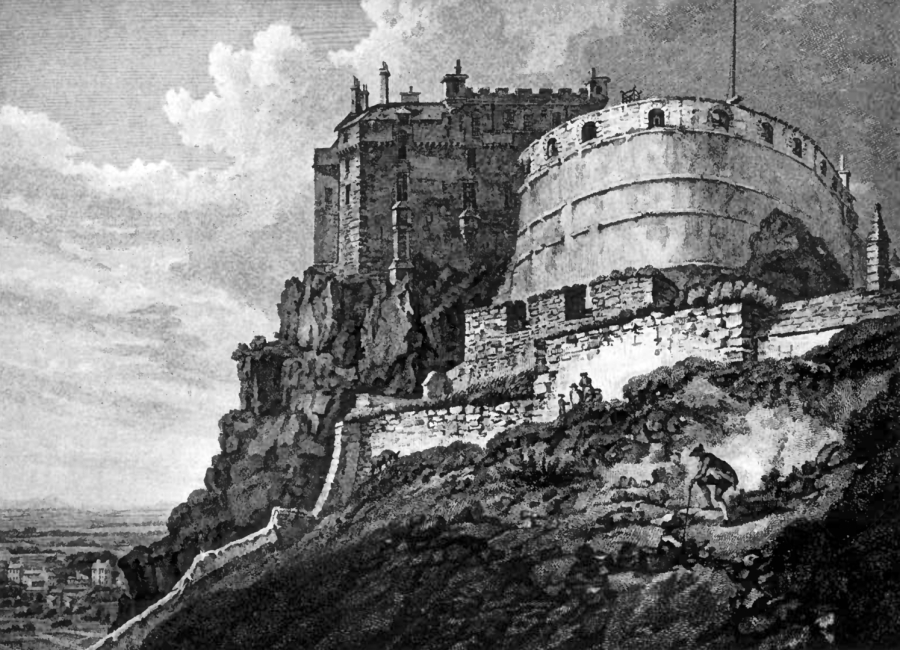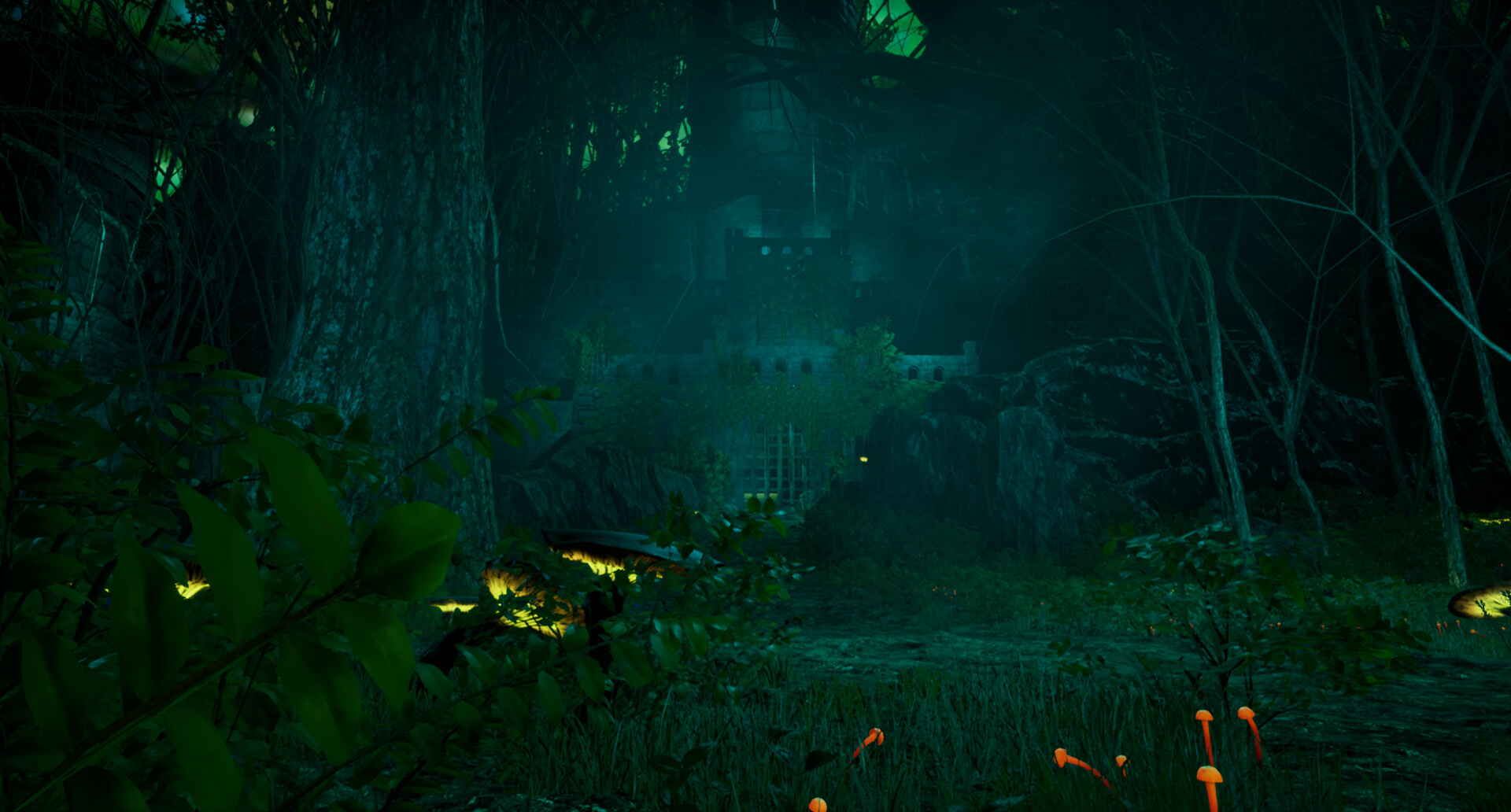I'm back, everyone! Chapter 2 of 'Of Geass and Madness' is finally finished. The madness (and Pizza Hut) is getting ever closer in this chapter. Hope you enjoy it!
OF GEASS AND MADNESS
CHAPTER TWO
Per Ignem Oritur Novus Camelotus
“July 4, 1776, Washington’s Rebellion, everyone loves to impress upon the world how significant that year was for us Britannians. Frankly, our ancestors had it coming. The old Britannia, having neglected its inner Pinnacle strength given to it by Jehovah Almighty, tried to do through degenerate backroom dealings what they could not achieve through the divine right of conquest.
As a result, the apostate nation that was the Old United States was able to achieve its independence, albeit a short-lived one. It was the first thing to expose just how unholy and rotten the Britannia of old had become. The second thing involved the enormous infighting that destroyed any sense of cohesion in the Imperial Navy. Patriot-Knight Nelson's death at Cape Trafalgar had proven to be one of the worst things that had ever befallen the empire.
As a result, Napoleon Bonaparte, the satanic, papist Corsican ogre, jumped eagerly when the opportunity presented itself. The Humiliation of Edinburgh was Britannia's second deserved defeat. Fortunately, thanks to the efforts of the Emperor-Prophet Ricardo and our ever-strong Pinnacle fluids, we are now made of sterner stuff and have learned quite well from our past failures. After all, as the Emperor-Prophet himself once said, ‘a Britannian always pays his debts.’"
- Emperor Joseph “Joe Steele” li Britannia I, 95th Emperor of the Holy Britannian Empire, 1926
- TROUBLE IN BRITANNIA -
The aftermath of Britannia's defeat in the American Revolution instigated substantial financial consequences for the empire and thus required decisive action. However, Henry X was already grappling with the inescapable march of age, illness, and even a possible state of senility, rendering him inert in responding to the empire's predicament. Consequently, the focus of real power gradually shifted to his eldest daughter, Princess Elizabeth ro Britannia. In the late 1780s, as her father's health deteriorated, Elizabeth evolved from a young princess known for her purportedly voracious sexual appetite into an intelligent political operative, ably supported by her protege and confidant, Ricardo de Bretan. With her father's demise on January 31st, 1788, the prospect of Elizabeth ascending to the throne loomed large.
However, the Council, the Imperial Court, and much of the higher nobility orchestrated a collective effort to thwart Elizabeth's accession to the throne. Instead, her uncle, Prince Charles el Britannia, was proclaimed the new emperor, becoming Emperor Charles III. Although the official reasoning behind this decision remained a mystery, rumors circulated that the court wanted to distance Ricardo, reputedly an insane religious zealot even by the standards of the time, as far as possible from the throne. Indeed, Ricardo would play a vital role in both Britannian and world history in the years to come and is something that will be focused on later. As for Elizabeth, she surprisingly exhibited an air of indifference, possibly biding her time to allow her uncle to discredit himself before making her strategic move. If so, then she would not have to wait long.
At the age of fifty-eight, Charles III, while considered somewhat advanced in years, possessed the virtues of being inoffensive, respectable, and reasonably sound of mind. Despite baseless rumors of homosexuality stemming from his celibate lifestyle, Charles acquiesced to marriage with one Mary Ashford in 1790, resulting in the birth of a son, Prince Arthur, in 1792. Nonetheless, Charles's reign signaled the commencement of the decline of what historians would later term the "Second Britannian Empire”.
The ominous clouds of impending turmoil began to gather in 1789 when the French Revolution erupted, toppling King Louis XVI, and culminating in his execution in January 1793. Britannia's response to these events was predominantly apathetic, as the empire was grappling with financial woes exacerbated by the American Revolution. By the time Charles ascended to the throne, these financial predicaments had translated into surging unemployment and sporadic food shortages. Faced with limited alternatives, Charles's government opted for a brief, triumphant war. They would not have to make the first move, as Revolutionary France conveniently declared war on Britannia in February 1793.
The Britannian involvement in the War of the First Coalition was a mixed affair. The once formidable Imperial Army had been enfeebled by a decade of neglect and complacency, evident in the poorly organized and supplied Britannian contingent during the Flanders Campaign from 1792 to 1795. Regiments, still under the control of their colonels, vehemently resisted any external interference, be it in matters of training, supply, or discipline. While Britannian troops exhibited prowess in small-scale conventional actions, their vulnerability surfaced in larger engagements and encounters with sizable French light troops. In stark contrast, the Imperial Navy excelled due to a culture of compulsory technical training and merit-based promotions.
The Battle of Famars, one of several battles fought during the Flanders Campaign of the War of the First Coalition
A concatenation of military setbacks, coupled with the economic strains imposed by the wider conflict and Henry's pre-war policies served to radicalize an already restless populace, and tensions soon increased. The culmination of said tensions occurred on July 14th, 1796, when a faction of pro-French intellectuals and journalists openly celebrated Bastille Day. This celebration catalyzed a sequence of both pro and anti-French demonstrations and riots. Some of the pro-French and revolutionary groups were suspected to have received influence and assistance from French agents. Cornered in Windsor Castle with the seemingly incapacitated Emperor Charles, his councilors deployed the Imperial Guard to restore order, but the effort proved futile. When the order to open fire was issued, certain units complied while others defied, adding to the chaos. It looked as if the Britannian monarchy would succumb to a fate akin to its French counterpart.
- THE EMPRESS’S FOLLY -
But it was not to be, for the monarchy's salvation came in the form of Elizabeth, whose hand was finally forced. With the collaboration of sympathetic insiders, Elizabeth, accompanied by a cohort including Ricardo and his jokingly named group the "Knights of the Round," successfully seized Windsor Castle, apprehending key government officials and courtiers, including the emperor. Encountering Charles in a seemingly unresponsive state, Elizabeth asserted herself as Regent, directing the Imperial Guards to withdraw. The subsequent morning saw her issuing a formal proclamation, assigning blame for the violence to several of her uncle's closest supporters and pledging reform. Temporarily, at least, the crisis was averted.
It was at this point that Elizabeth arguably committed her gravest error. Secure in her position, she proceeded to declare her uncle's ascension to the throne illegal, exploiting his perceived incapacity (and likely senility) to orchestrate his formal deposition by Parliament. Parliament, in turn, bestowed upon her the crown, resulting in her being enthroned as Empress Elizabeth III. While her supporters, the London populace, and the merchant classes welcomed this development, the high aristocracy and a substantial faction viewed the move as both illegal and treasonous, further deepening the schism within the realm.
And things would only grow increasingly dire. In January 1799, French General Napoleon Bonaparte staged a coup against the Directory, assuming the title of First Consul. Despite the historical recognition of this moment as the founding of the European Union, Elizabeth III, and her contemporaries portrayed Napoleon as a tyrant. Over the next seven years, Elizabeth fiercely opposed Napoleonic France, but her efforts proved ultimately futile. Elizabeth's coup against her uncle's government, her subsequent ascension (usurpation to some) to the throne, and Britannia's struggles in the Napoleonic Wars eventually proved too much for the empire to handle.
Napoleon Bonaparte, First Consul of the French Republic and founding father of the European Union
- THE BATTLE OF TRAFALGAR AND THE FRENCH INVASION OF BRITANNIA -
On October 21, 1805, a Britannian fleet commanded by Vice-Admiral Horatio Nelson faced a combined French and Spanish fleet near Cape Trafalgar. Nelson, a celebrated and beloved commander, fell victim to the same aristocratic infighting that would later afflict Empress Elizabeth. The circumstances surrounding his death remain unclear, but multiple accounts indicate that several warships attempted to leave Nelson's battle lines at a critical moment. Speculations range from a deliberate conspiracy against Nelson to self-preservation motives. Despite the debatable outcome of the battle in terms of losses, Nelson's tragic death marked a French victory, triggering public grief that swiftly turned to anger when rumors spread that Nelson had been betrayed.
The rumors were only strengthened when a Britannian warship, HMS
Cadmus, returned to Portsmouth with most of its officers missing. The surviving officers and crew claimed that the captain and senior officers had withdrawn
Cadmus from the battle line contrary to Nelson's orders and that several other ships had done likewise. The Admiralty declared their accusations false and arrested the surviving officers and several members of the crew on charges of mutiny and murder, finding them all guilty. The backlash against the mutineers’ arrest was immense, forcing Elizabeth to intervene, and personally oversee the acquittal of the accused mutineers, and initiating an investigation that resulted in the arrest of hundreds of officers. This, in turn, caused the resignation of numerous outraged officers in protest, crippling the Imperial Navy at a crucial juncture.
The Battle of Trafalgar
Vice-Admiral Horatio Nelson, 1st Viscount Nelson, 1st Duke of Bronte (he would posthumously be given the title of “Patriot-Knight” by Richard V in 1815)
However, the situation took a turn for the worse. In June of 1807, Napoleon initiated his long-anticipated invasion of the British Isles, which had been delayed by Prussia's unexpected declaration of war earlier that year. Napoleon's focus on Eastern affairs allowed Admiral Pierre Villeneuve, victor of Trafalgar, and Emmanuel de Grouchy, accompanied by Rafael del Riego commanding a substantial Spanish contingent, to lead the invasion. Initial landings occurred along the Kent coast, met with fierce resistance from coastal fortifications. Dover found itself under siege within two days, and additional troops landed at smaller ports.
Elizabeth activated her defense plans, instructing troops to assemble in major cities and towns. However, the response from southeastern nobles was hesitant. Some dismissed the warnings as an invasion scare, while others suspected Elizabeth of using the situation to seize their estates and impose martial law. This distrust led many to refuse cooperation, even diverting militia or regular army units to protect their estates or form local self-defense leagues. Unfortunately, these leagues quickly succumbed to Napoleon's forces, and within a week of the initial landings, London faced an imminent threat.
Forced to abandon London, Elizabeth, accompanied by her government, the Imperial Guard, and the treasury's gold reserves, sought refuge in Cambridge. Here, she oversaw the city's fortification and organized the raising of fresh troops. News of the failed self-defense leagues prompted nobles and commoners alike to rally behind their Empress. As French and Spanish troops advanced, Britannian forces and militia retreated north and west, gathering in strategic locations.
Recognizing Britannia's potential to mobilize significant forces against him, and unsure of the Spanish and other allied troops under his command, Grouchy adopted a cautious approach. His allied troops focused on creating a defensible zone in the southeast, securing ports and cities, and preparing for potential Britannian counterattacks. Despite this, Grouchy deployed a 30,000-strong army to capture Cambridge and eliminate Elizabeth. However, a Britannian army under the command of Sir Arthur Wellesley halted its advance near Great Chesterford.
Elizabeth, bolstered by this victory, embarked on a tour of inspection, overseeing the fortification of cities and towns while organizing troops and supplies. Learning of Napoleon's dissatisfaction with his cautious strategy, Grouchy shifted focus westward, aiming to secure a major victory before Napoleon concluded his Eastern affairs. Grouchy succeeded in catching and destroying Elizabeth's Army of the West near the town of Andover. This allowed him to swing south, capturing Southampton and besieging the more formidable defenses of Portsmouth, which eventually fell on July 28th.
Napoleon arrived in London on August 10th, receiving an enthusiastic welcome from pro-French Britannians. Although impressed, he assumed overall command, directing Grouchy to push west while launching a full-scale offensive north. This forced the defending armies, led by Sir Arthur Wellesley, Lord Lewis de Bourgh, and Sir David Baird, to withdraw. Britannian Volunteer units slowed Napoleon's advance with guerrilla attacks as the three armies fortified positions along the Trent River. However, Napoleon planned a three-pronged attack on Nottingham, Derby, and Newark-on-Trent.
The attack commenced on August 26th, with Napoleon, once again unpredictable, taking command of the eastern column supposedly targeting Newark-on-Trent. He turned north, marching on Lincoln, defended only by militia. Despite a valiant defense, Lincoln fell within a day. Napoleon then headed north towards Gainsborough, aiming to cross the Trent and outflank the main Britannian armies. Wellesley, anticipating Napoleon's intentions, rushed his army north to Gainsborough, pleading with De Bourgh and Baird for support. Baird, holding his position at Nottingham, and De Bourgh's delayed reaction forced Wellesley to delay Napoleon's vanguard at Gainsborough before superior numbers compelled a withdrawal to Doncaster.
The situation remained dire, but not insurmountable. Napoleon reached the limit of his supply lines, while additional Britannian troops gathered around York. Wellesley planned to fortify Doncaster, either repelling Napoleon's advance or launching a forceful counterattack once sufficient troops arrived. However, this plan was thwarted by De Bourgh and a group of high nobles. Angry at having to abandon their estates on Elizabeth's orders, they compelled Wellesley to support a retaliatory strike. The armies clashed at Bawtry along the River Idle on September 2nd, destroying the 80,000-strong Britannian army. Wellesley narrowly avoided capture and gathered what remained of his army, fleeing into far northern Britannia.
Sir Arthur Wellesley leads 80,000 Britannian troops in the disastrous Battle of Bawtry
- THE HUMILIATION OF EDINBURGH AND THE DEATH OF THE SECOND BRITANNIAN EMPIRE -
Simultaneously, Edinburgh faced its disaster. Elizabeth, trapped in Edinburgh Castle as law and order crumbled, had left her Foot Guards in Newcastle to form a new Army of the North and reassure citizens of her commitment to fight. However, she discovered that Edinburgh was poorly administered, grappling with a shortage of food, and facing chaotic military logistics. As her arrival became known, citizens gathered outside the castle, seeking bread and relief from poverty. Initially peaceful, the situation escalated when one of the local political clubs, now styling itself the Britannian Revolutionary Council, began stirring unrest among the crowds.
Efforts by authorities to pacify the situation were met with resistance from the revolutionaries, who unleashed a mix of criminals, impoverished weavers, displaced highlanders, and other societal outcasts they had clandestinely introduced into the city over weeks. Edinburgh descended into turmoil, and Elizabeth found herself besieged in the castle, with limited supplies for only a few days and no means to seek assistance. Employing a bluff, the revolutionaries sought to convince the desperate Empress that they had control of the city. They warned that unless she yielded to their demands, which were Elizabeth's abdication and peace with France, they would either storm the castle or abandon its occupants to starvation. Trapped and exhausted, Elizabeth succumbed, signing both the abdication and an order for all troops to lay down their arms on September 14th, 1807, in what would come to be known as the Humiliation of Edinburgh.
Emboldened by their unexpected victory, the revolutionaries sought to establish a revolutionary government quickly. However, their focus on exterminating the Imperial Family faced mixed success. While Elizabeth's siblings and relatives, including Empress Dowager Mary and Prince Arthur, were hunted down, and slaughtered, many nobles managed to flee the Isles to North America, preserving their wealth. Although this would lead to Britannia's post-Edinburgh preservation and eventual resurgence as a great power, it ultimately condemned the world of the future to a terrible, terrible fate.
Edinburgh Castle, location of the Humiliation of Edinburgh
Meanwhile, public dismay, widespread desire for reform, and Napoleon's ruthless actions turned sentiment against the revolutionaries. As French forces advanced, Admiral Collingwood stayed behind to defend Newcastle, costing him his life. By late August 1807, Napoleon's army approached Edinburgh, achieving in a month what would have taken months or years against organized resistance.
Despite the chaos, Britannia found a glimmer of hope in Ricardo and his Round Table Knights. Responding to the events in Edinburgh, Ricardo led a mission to infiltrate the castle, rescuing Elizabeth and the other prisoners. Escaping to Dundee, Elizabeth initially wanted to fight from Ireland, but Ricardo urged an immediate Atlantic crossing. Strengthened by news of the collapsed Irish government, Elizabeth and her followers boarded the warship HMS
Aeneas, sailing north to rejoin Wellesley, who now led what remained of the Imperial Army and Navy. Elizabeth then ordered the journey to Britannian North America (i.e., Canada); for her and most of those with her, it was the last they would ever see of the British Isles.
The Second Britannian Empire, which had been inaugurated in 1690 with the coronation of Richard IV, was dead and gone. Scars were left on those Britannians who fled to Canada, scars that would only deepen as time passed, scars that would be passed on to their descendants. Indeed, the fall of the Second Britannian Empire at the hands of France and its allies is considered by many to be the beginning of the so-called “
Dark Era”. True horror would result from Napoleon’s invasion and conquest of the British Isles… horror beyond his wildest imagination.
As for the First Consul himself, Napoleon witnessed Britannia's violent disintegration with disbelief. Much of the ruling elite had fled, leaving chaos in its wake. Revolutionary mobs and deserting soldiers ran rampant, while factions formed among the citizenry – some supporting the French and revolution, others vehemently opposing them. Law and order crumbled, and society itself began to break down. Recognizing his unique position to restore order, a deputation of surviving notables, including nobles, gentry, civic leaders, bishops, and military officers, led by Robert Jenkinson, 2nd Earl of Liverpool, approached Napoleon in September 1807. Seeing Jenkinson as a potential leader for the newly proclaimed State of Britain, Napoleon persuaded him to accept the title of Governor. Jenkinson's position would be subject to a democratic election at the earliest opportunity. Leaving just enough troops to assist the Governor and his new government in restoring order, Napoleon returned to France, leaving a traumatized Britain in a precarious peace.
Robert Jenkinson, the first Governor of the State of Britain
- THE BIRTH OF THE THIRD BRITANNIAN EMPIRE -
Although the Second Britannian Empire had collapsed, Britannia as a nation was far from defeated. Operating from her new provisional capital in Quebec City, Elizabeth actively worked to preserve the Holy Britannian Empire, now comprising only Canada, using any means necessary. However, numerous challenges emerged. Elizabeth commanded approximately 50,000 regular troops, predominantly consisting of poorly trained raw recruits due to the transfer of better units to the British Isles years earlier. Additionally, she could muster around 25,000 militia with varying capabilities, ranging from battle-hardened colonial dragoons to generally subpar infantry battalions.
Elizabeth and her associates were not the sole exiles to Canada; a continuous stream of loyalists and other refugees sought refuge in the aftermath of the Humiliation of Edinburgh. These refugees, predominantly nobles, included those who fled with minimal belongings initially and later waves of embittered emigrants who brought their properties after 1810. Ricardo swiftly established himself as Elizabeth’s Chancellor and chief advisor, leveraging local connections and resources to establish a functional government. The new administration comprised Ricardo's supporters, a blend of Britannian nobles and local dignitaries he had cultivated relationships with over the years.
Quebec City, the provisional capital of the Holy Britannian Empire
On October 18th, 1811, the ailing Empress Elizabeth III, surrounded by her senior courtiers, passed away. Her death marked the end of the Tudor Dynasty, as she had designated Ricardo as her successor before her demise, surprising her blood relatives in attendance. The declaration sent shockwaves through the court and Britannian Canada, particularly because Ricardo, though widely respected for his effective administration and chancellorship during Elizabeth's illness, was not universally beloved. His stern demeanor, strict governance, darker inclinations, and well-known religious fanaticism contributed to this sentiment. Furthermore, his appointment to the throne over Elizabeth's surviving blood relatives raised the specter of a potential civil war, as it defied tradition and practice. Nevertheless, it became evident that Ricardo would ascend as Emperor, supported by most of the army and his court faction. Within days, he effectively seized control, unleashing violence that would persist for months.
While expectations were that Ricardo would strategize to reclaim the British Isles from the French, he had different intentions. On November 11th, through a series of pamphlets titled
Per Ignem Oritur Novus Camelotus (Latin for "Through Fire, the New Camelot Arises"), Ricardo outlined his vision for a magnificent new Britannia destined to endure for a thousand generations. He enticed nobles and commoners alike with promises of untold riches and the restoration of an empire transformed into a glorious New Camelot spanning the hemisphere – a harmonious unity for all of God's Chosen Betters. Ricardo supplemented this with nationalistic propaganda, legitimizing his ascension. He promoted the tales of the Celtic warlord Alwyn and Emperor Arthur as the first true defenders of the British Isles. Ricardo also asserted that the Humiliation of Edinburgh was a divine signal to start anew in the New World, away from the corrupted Old World dominated by Napoleon and his perceived satanic, inferior hordes of papists and deists. This proclamation, known as the Ricardian Proclamation, marked November 11th, 1811, as Rebirth Day and is considered the inception of the Third Britannian Empire.
In the aftermath of the proclamation, nobles came together to offer treasure and sword to the cause, while ordinary Britannians flocked to donate what little money they had, or to swell Britannia's armies. Not everyone accepted this, however. Though some unrest did occur throughout many towns and cities via supporters of the remaining Tudors, it was relatively minor and nothing local authorities could handle. The real backlash came from other court factions, generally centered around Elizabeth's surviving relatives. Though there was no Imperial Guard at this stage, Ricardo had several knightly orders at his disposal; chief among them the Knights of the Round Table. Led by Sir Richard Hector, these knights moved swiftly against Ricardo's enemies, killing dozens in a single night. Those of Elizabeth's relations not killed were forced to flee, some of them all the way back to the British Isles. As a result, the empire was completely pacified by early December.
On Christmas Day 1811, Ricardo’s coronation inside the Notre-Dame de Québec Cathedral (later renamed to the Imperial Fundamentalist Christian Church of Keybeck as part of a national process to de-papify the empire) commenced. With the coronation anthem ‘
Zadok the Priest’ being performed by an accompanying choir and orchestra, Ricardo entered the cathedral in a grand procession, and was bestowed the imperial name Richard van Britannia. As soon as he was crowned Emperor Richard V, the orchestra played a new anthem said to have been written by the new emperor himself in the months before the coronation. It was titled ‘All Hail Britannia’, and the choir began to sing the following lyrics:
Truth and hope in our Fatherland,
And death to every foe!
Our soldiers shall not pause to rest,
We vow our loyalty!
Old traditions they will abide,
Arise young heroes!
Our past inspires noble deeds,
All Hail Britannia!
Immortal beacon shows the way,
Step forth and seek glory!
Hoist your swords high into the clouds,
Hail Britannia!
Our Emperor stands astride this world,
He’ll vanquish every foe!
His truth and justice shine so bright,
All hail his brilliant light!
Never will he be overthrown,
Like mountains and sea!
His bloodline immortal and pure,
All Hail Britannia!
So let his wisdom guide our way,
Go forth and seek glory!
Hoist your swords high into the clouds,
Hail Britannia!
With the Bretan Dynasty underway, a new phase of Britannian history began. Emperor Richard’s first act was to have a new constitution written up. The
Carta Ricardia (“Ricardian Charter” in Latin), as it came to be known, stated that the armed forces were loyal and answerable only to the emperor and that an Imperial Senate consisting of a non-elected House of Lords and an elected House of Commons (both led by a Chancellor) would be established. Local legislatures also consisting of elected officials were set up to oversee parts of the empire. However, only the landowning wealthy elite was given voting rights. Richard also had the Union Jack, the flag of Britannia, replaced with a new one titled “The Lion and Serpent”. The new flag was a mixed fusion of the St. George's Cross and the Union Jack. It also bore a unique coat of arms consisting of a lion, which represented the emperor, and a serpent, which represented death and rebirth.
View attachment 884024
The Lion and Serpent, the current flag of the Holy Britannian Empire
The Imperial Fundamentalist Christian Church of Keybeck in the present day
Quebec City, meanwhile, remained the capital of Britannia, but it was obvious to those close to Richard that he had no intention of staying in that city. In February of 1812, Emperor Richard summoned his advisors before laying out his intentions for the empire; a program of imperial expansion that would bring all North America under Britannian rule. His main target: the United States of America, or more specifically, its successor states in the Republican Union of America, the Green Mountain Republic of Vermont, the Chesapeake Republic of Maryland, the Republic of Virginia, the Confederation of the Carolinas, and the Republic of Georgia. When asked why he wanted to target the American nations for war, Richard was said to have uttered the following:
“A Britannian always pays his debts.”













